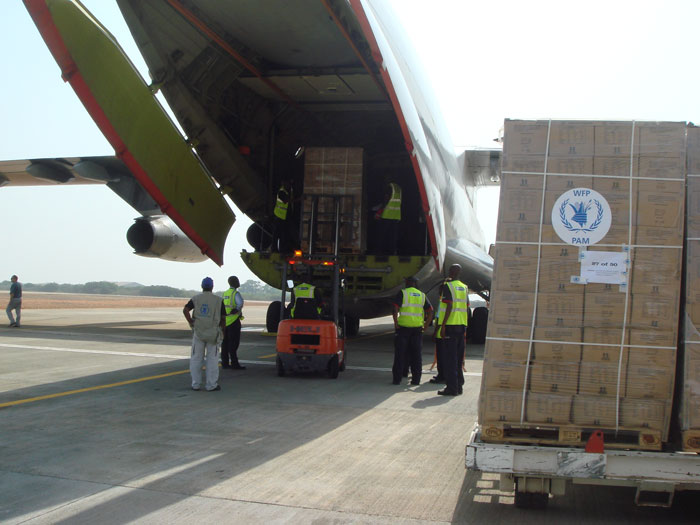The best-stocked depot that responds to West African requests for help during natural disasters is in Brindisi, Italy. Managed by the UN’s World Food Programme since 2000, the depot is one of five UN humanitarian response depots, with the others located in Panama, United Arab Emirates, Malaysia and Ghana.
ECOWAS’s Director of Humanitarian and Social Affairs, Dan Eklou, told IRIN that during 2009 flooding in West Africa, it took more than one week for some areas to receive materials from the Brindisi depot, which warehouses everything from tents to toilets, biscuits to blankets. “If the goods were in Bamako, it would not have taken that long to reach people who needed help.”
In Abuja, Nigeria in 2000 ECOWAS voted to create two permanent logistical bases in West Africa, one to store humanitarian supplies and the other peacekeeping materials to serve ECOWAS member states. Mali and Liberia were subsequently chosen as sites for the respective bases.
Nine years later, West African governments are preparing to sign the humanitarian stockpile into existence through an agreement with the government of Mali, which is making available 15 hectares at its airport in Bamako to house the planned depot.
Eklou said it will take time to conduct feasibility studies for construction. The organization is considering offers from the United Nations to build and stock the new warehouse.
The region’s stockpile capacity is currently inadequate, according to head of West Africa’s UN Office for the Coordination of Humanitarian Affairs (OCHA), Hervé Ludovic de Lys. “Given weather trends, climate change pressure and other indicators, it will become increasingly necessary to decrease the distance between depot and beneficiaries and to increase the stock of materials that can be deployed in times of catastrophe or crisis.”
As important as ease of access, is sovereignty added Eklou. “We do not want to depend on others from outside the region. There should be no constraints to disaster response.”
Pending signature of the agreement, all stockpile operations will be tax-free and free from import or export restrictions that govern the movement of goods in and out of Mali. Employees will have diplomatic immunity.
The depot is also intended to serve as a training facility for humanitarian rapid response exercises.
pt/aj
This article was produced by IRIN News while it was part of the United Nations Office for the Coordination of Humanitarian Affairs. Please send queries on copyright or liability to the UN. For more information: https://shop.un.org/rights-permissions




